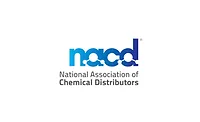NACD Asks Federal Maritime Commission to Address Shipping Challenges
ARLINGTON, VA — The National Association of Chemical Distributors (NACD) delivered a letter to the Federal Maritime Commission (FMC) urging the agency to move beyond fact-finding to advancing solutions that protect U.S. based importers and exporters from systemic shipping delays, price surges and unfair fees.
NACD reports that U.S. ports delays that arose at the onset of the coronavirus pandemic have only gotten worse. A recent NACD survey found that over 80% of respondents have experienced average delays of 11 days or more, with some delays reported to be as much as 150 days. Shipping costs are also up an average of over 80% since the outbreak of the pandemic. More than three-quarters of NACD members have lost revenue as a direct result of shipping delays, with half of respondents reporting that they have lost more than $100,000.
"Delays and price increases don’t only mean inconvenience and lost revenues, they also mean higher consumer prices and the potential for shortages of the inputs that go into some of our most critical industrial and consumer goods," said NACD President and CEO Eric R. Byer. "Longer transit times and frequent delays have a huge ripple effect on the overall economy, with enormous cost ramifications that threaten to drive smaller companies out of business and make America less competitive in the global marketplace."
NACD called on the FMC to work to ensure that neither ocean-liner shipping groups nor foreign government laws or regulations impose unfair costs on American exporters, importers or consumers. It also asked that FMC to prohibit indiscriminate and unscrupulous detention and demurrage charges to shippers when terminals/ports are not operating and unloading containers, are not open for business, or have considerable backlogs and delays lasting days and week. The association also called for FMC to advocate for a more modern supply-chain.
NACD also called on the Biden Administration and Congress to invest dedicated infrastructure dollars in addressing freight bottlenecks, including investment in real-time tracking of vessels to customers from ship to port, truck and rail, in addition to supporting the U.S. manufacturing base for shipping containers and chassis to put more shipping containers into the system.
Looking for a reprint of this article?
From high-res PDFs to custom plaques, order your copy today!






